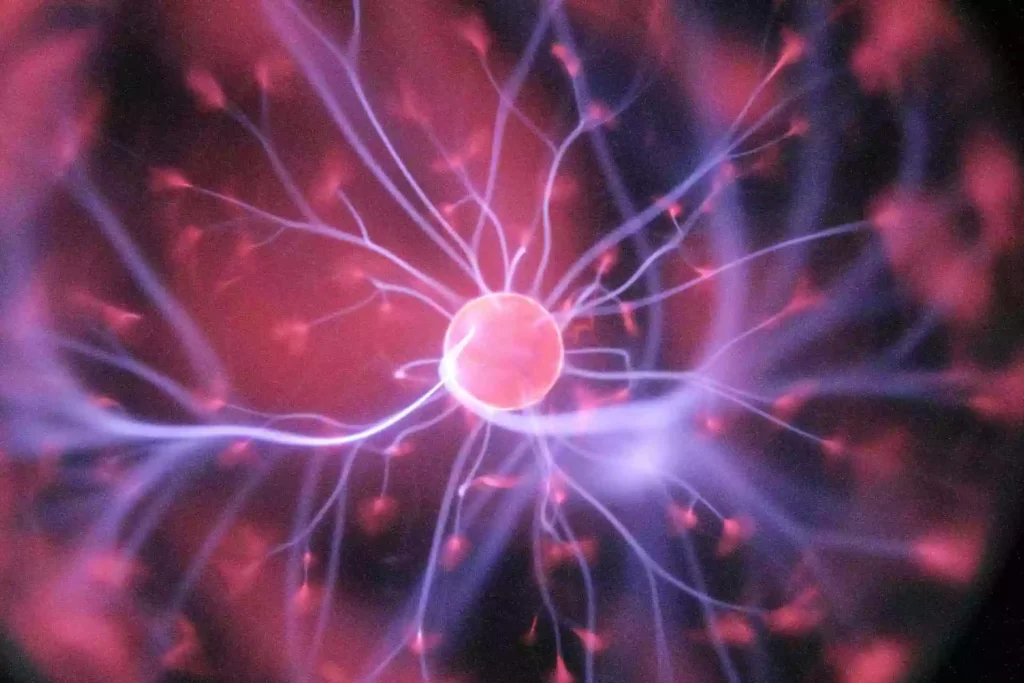Choose To Transform
With Life Coaching

ARE YOU AN ADULT CHILD OF DYSFUNCTION?
(We all are to some extent)
| Quiz Questions |
|---|
| 1. Do you have trouble with intimate relationships, because you fear being vulnerable and have difficulty trusting? |
| 2. Do you fear being abandoned and find yourself overreacting to the threat of loss of a relationship? |
| 3. Have you created patterns in your adult life that are similar to the ones you grew up with, even though you vowed you never would? |
| 4. Do you feel stuck in the past and unable to let go of things that have happened in your past? |
| 5. Do you overreact to things in the present without knowing why? |
| 6. Do you try to control everyone and everything? |
| 7. Do you feel different from others and wonder what normal is? |
| 8. Are you either super responsible or super irresponsible? |
| 9. Are you depressed, angry, unhappy, sad, guilty, fearful, lonely, hurt, or continually frustrated without really knowing why? |
| 10. Are you making destructive choices in your own life and relationships without knowing why or how to stop? |
| 11. Do you create turmoil in your life and relationships, because it feels familiar? |
| 12. Are you loyal to people even when you shouldn’t be? |
| 13. Do you see God as critical and demanding and have trouble accepting His unconditional love? |
| 14. Are you critical of others and extremely critical of yourself? |
| 15. Are you trying to get what you didn’t get as a child or is your life unmanageable today because of problems related to your past? |
If you answered YES to two or more questions, you are an Adult Child of Dysfunction and your life is affected by it.
Mildly Affected: 2-5
Moderately Affected: 5-10
Extremely Affected: 10-15
ARE YOU AN ADULT CHILD OF DYSFUNCTION?
(We all are to some extent)
| Quiz Questions |
|---|
| 1. Do you have trouble with intimate relationships, because you fear being vulnerable and have difficulty trusting? |
| 2. Do you fear being abandoned and find yourself overreacting to the threat of loss of a relationship? |
| 3. Have you created patterns in your adult life that are similar to the ones you grew up with, even though you vowed you never would? |
| 4. Do you feel stuck in the past and unable to let go of things that have happened in your past? |
| 5. Do you overreact to things in the present without knowing why? |
| 6. Do you try to control everyone and everything? |
| 7. Do you feel different from others and wonder what normal is? |
| 8. Are you either super responsible or super irresponsible? |
| 9. Are you depressed, angry, unhappy, sad, guilty, fearful, lonely, hurt, or continually frustrated without really knowing why? |
| 10. Are you making destructive choices in your own life and relationships without knowing why or how to stop? |
| 11. Do you create turmoil in your life and relationships, because it feels familiar? |
| 12. Are you loyal to people even when you shouldn’t be? |
| 13. Do you see God as critical and demanding and have trouble accepting His unconditional love? |
| 14. Are you critical of others and extremely critical of yourself? |
| 15. Are you trying to get what you didn’t get as a child or is your life unmanageable today because of problems related to your past? |
If you answered YES to two or more questions, you are an Adult Child of Dysfunction and your life is affected by it.
Mildly Affected: 2-5
Moderately Affected: 5-10
Extremely Affected: 10-15

THE BUTTERFLY AND TRANSFORMATION
Transformation can be thought of as lasting significant positive change. The Transformation journey is the process of undergoing that change. The caterpillar feels the urge to eat then gets tired and succumbs to the impulse to hang upside down and transformation begins with the development of the chrysalis. With the proper time and circumstances the process of transformation takes place. At the end of the transformation the beautiful and completely different butterfly emerges from essentially what was the caterpillar that broke down to goo and reinvented itself as the butterfly. Even what the butterfly wants is different from what the caterpillar wants. The willingness of the caterpillar to undergo the process of transformation was the catalyst for the transformation. As with us our willingness will ignite this journey of transformation and each step will become illuminated to us as we go. So resisting change because we can’t see the path clearly and our uncertainty holds us back from progressing in life. Just as you continue driving in the fog and the road becomes clear as you drive, have that same faith during your journey of transformation.
Change is inevitable. Change happens all around us. Much of this change is out of our control. Everything alive is always growing or dying. Which do you choose to be? What if we could gain some control by influencing the change that takes place in our mind. The science of change starts in our mind and tells us that change can be good but we have to take initiative to make positive changes in our lives. Changing our minds literally can change our emotions, which can change our actions and ultimately change the results we see playing out in our lives. We can take the reigns of change and propel ourselves forward instead of merely going along for the ride. With a Life Coach you can utilize a guide on your transformation journey to make sure you are on a path that is aligned with your true self and all areas of your life are working together to reach your goals and help you progress.
Choose to Transform Today!
I would be honored if you chose me as your life coach. All queries are replied within 24hrs.
WHY PEOPLE CHANGE
Reactive: respond to life change – have to change.
Proactive: initiate life change – want to change.
Move Away From Pain: escape negative situation – the consequences of not changing
are high.
Move Toward Joy: fulfill passion – seek higher meaning, purpose, fulfillment and
self determination.

WHY PEOPLE CHANGE
Reactive: respond to life change – have to change.
Proactive: initiate life change – want to change.
Move Away From Pain: escape negative situation – the consequences of not changing
are high.
Move Toward Joy: fulfill passion – seek higher meaning, purpose, fulfillment and
self determination.

CHOOSE TO TRANSFORM
WHAT HOLDS PEOPLE BACK FROM CREATING LASTING CHANGE:
| Barriers to Personal Growth and Success |
|---|
| 1. Fear of rejection/judgement |
| 2. Fear of uncertainty/discomfort |
| 3. Stuck in habits/patterns |
| 4. Overwhelm/inaction |
| 5. Lack of confidence and belief in themselves |
| 6. Fear of disappointment/failure |
| 7. Fear of unintended consequences |
| 8. Lack of clarity/motivation |
| 9. Lack of self-awareness |

NEUROPLASTICITY, THE BRAIN AND CHANGE
Neuroplasticity is the brain’s ability to change and adapt based on experiences. Improving ones neuroplasticity can sharpen memory, concentration, and cognitive skills. It can help address anxiety and depression. One of the methods I utilize in my coaching, among others, is the science of Neuroplasticity to make lasting progress in our lives. The neural pathways and networks created by doing tasks over and over can be reorganized both in structure and function. We can therefore rewire patterns in our brain and create new networks to improve well-being. Our neural networks are either getting stronger or weaker. Old synapses which are the spaces between neurons that are no longer being used are eliminated during synaptic pruning. This is similar to if you don’t use it you lose it. Lets say you’re a whiz at typing and you don’t have to look at the keys to type. You have developed these neural pathways associated with typing that are so strong typing is second nature to you. You hardly have to think about it. But try something new for the first time and it will be more difficult because those neural networks have not been established.
BENEFITS OF NEUROPLASTICITY
1. Helps us learn new things
2. Helps with depression and anxiety
3. Helps us engage in activities more thoughtfully
4. Aids recovery from stroke and other traumatic brain injuries
5. Ability to enhance cognitive abilities
6. Can help us break bad habits or develop good habits

WHY CHANGE IS GOOD
| Reasons Why Change Is Good |
|---|
| 1. Change can be the thing that gets us out of a difficult mental health space |
| 2. Change can help us form new habits and break old ones |
| 3. Change brings new opportunities and connections |
| 4. Change helps us move forward |
| 5. Change helps us develop resilience |
| 6. Change makes life more exciting |
| 7. Change builds self-confidence |
| 8. Change helps you discover who you really are |
| 9. Change gets us out of destructive routines |
| 10. Little changes create a snowball effect |
| 11. Change triggers progress |
| 12. Change can help foster creativity |
| 13. Change can help us see things in a new light |
WHY CHANGE IS GOOD
| Reasons Why Change Is Good |
|---|
| 1. Change can be the thing that gets us out of a difficult mental health space |
| 2. Change can help us form new habits and break old ones |
| 3. Change brings new opportunities and connections |
| 4. Change helps us move forward |
| 5. Change helps us develop resilience |
| 6. Change makes life more exciting |
| 7. Change builds self-confidence |
| 8. Change helps you discover who you really are |
| 9. Change gets us out of destructive routines |
| 10. Little changes create a snowball effect |
| 11. Change triggers progress |
| 12. Change can help foster creativity |
| 13. Change can help us see things in a new light |

What are Your Personality Styles?
Its important to know yourself and what personality styles you prefer. However, you can learn, develop, and cultivate balance. Life Coaching can help! Call now.
1. Energy Source:
Extroverts | Introverts |
Express their thoughts readily | Reflect in silence |
Think in public | Think first and speak out afterwards |
Action oriented | Reflect more before acting |
Like social gatherings | Often prefer smaller gatherings or one-to-ones |
2. Thinking Style:
Structured Approach | Emerging Approach |
Planned, structured | Spontaneous, flexible |
Systematic and methodical | Creative approach to work |
Goal oriented | Goal can be modified |
Prefer to finish things | Prefer options until the last minute |
3. Decision Making:
Detail Oriented | Big Picture Oriented |
Good at analytical, sequential, and logical thinking | Good at lateral, holistic, systemic thinking |
Focus on the challenges of the present | Focus on future oriented solutions |
Focus on what is real | Focus on patterns |
Understand ideas and theories through practical applications | Want to clarify ideas and theories before putting them into practice |
4. Working Style:
Fact Oriented | Value/People Oriented |
Analytical | Empathetic, holistic |
Strong belief in logic | Strong internal value system |
Focus on the internal consistency of an approach first | Consider the impact of a decision on people first |
Objectivity | Do not believe in objectivity as a guiding principle |
5. Emotions & Reactions
Immune | Excitable |
Weak response to external stimuli | Strong response to external stimuli |
Limited emotional variety | Wider emotional variety |
Calm | Enthusiastic |
Even tempered | Higher variation in temper |
Choose to Transform Today!
I would be honored if you chose me as your life coach.
All queries are replied within 24hrs.
Weekly Newsletter
Get my tips directly into your inbox.
Every Monday get a free tip!


